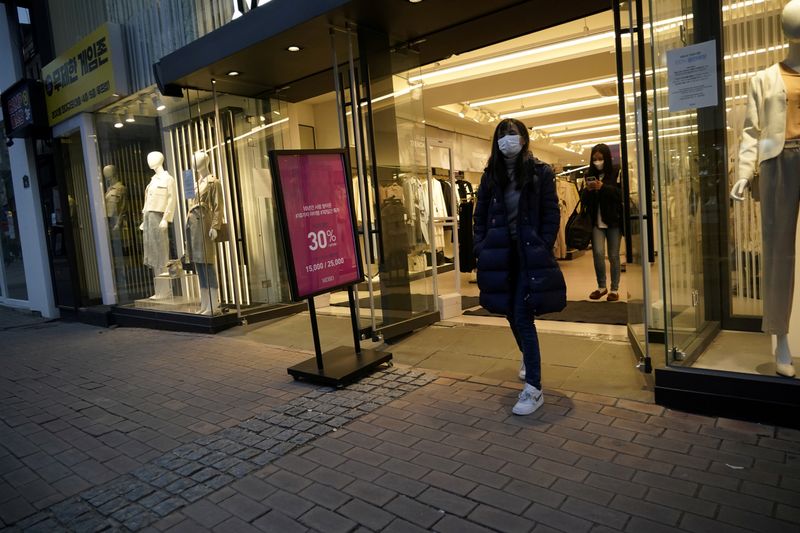By Cynthia Kim and Joori Roh
SEOUL (Reuters) - South Korea's central bank kept interest rates unchanged on Thursday, dashing expectations for a cut, even as the rapid spread of the coronavirus in Asia's fourth-largest economy threatened to derail growth.
The Bank of Korea's policy board held the base rate steady at 1.25%, a decision that was predicted by only 10 of 26 economists surveyed by Reuters. The central bank cut rates in July and October last year.
A majority of economists had expected the BOK to cut rates to head off the impact of the virus.
Governor Lee Ju-yeol is due to hold a press conference at 0220 GMT, after the bank announces revised growth forecast and inflation outlook.
The Korean won sharply gained against the dollar after the rate decision while three-year treasury bond futures March contract fell, as a cut was priced in.
"A key difference today, compared to SARS and MERS epidemic, is that policy ammunition is relatively limited," said Ma Tieying, a DBS economist who sees at least one easing this year. Ma correctly predicted the BOK would stay on hold on Thursday.
"We think the BOK will still respond to the pandemic shock this time, but in a reactive rather than pre-emptive manner."
One potential concern for policymakers is that further stimulus risks worsening Seoul's house price bubble and undermining financial stability.
The median apartment price in Seoul has shot up almost 50% since President Moon Jae-in took office in May 2017, December data showed.
A weakening won and capital outflow risks may also deter the BOK from cutting rates.
Those risks combined with South Korea's reliance on global trade leave policymakers in a bind.
South Korea has seen a massive spike in new coronavirus cases and now has more infections than any country outside China. The outbreak has kept consumers at home, weakened trade and fanned investor uncertainties.
South Korean President Moon Jae-in on Monday said a supplementary budget should be drawn up to cushion the virus's impact on the economy.
About a dozen brokerages from BofA Securities, Capital Economics to Goldman Sachs (NYSE:GS) now see Asia's fourth-largest economy growing at a slower pace than last year's paltry 2.0%, which was the worst growth since the global financial crisis.
Exports to China, where the epidemic originated, shrank 3.7% in the first 20 days of February from a year earlier, portending worse to come over the next few months.
In a break from decades-old practice, Thursday's rate decision was announced via emails and text messages, not in the bank's press room, as authorities seek to contain the spread of coronavirus by limiting crowds.
